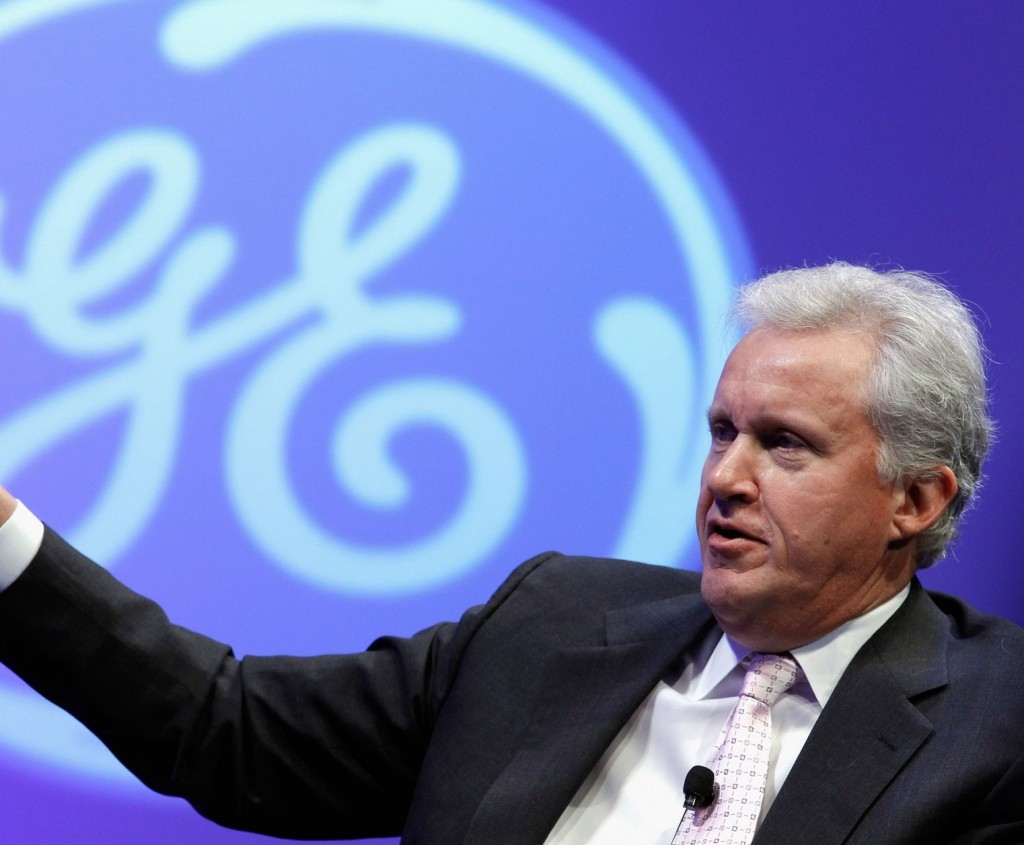
Jeff Immelt, the embattled CEO of General Electric Co., is doing the right thing by moving on. It’s now up to his successor to finish what he started.
GE announced on Monday that Immelt would end his 16-year tenure as CEO in August and hand over the job to the company’s head of health care, John Flannery. The timing is a bit surprising, given that just weeks ago Immelt was defiantly touting his accomplishments and seemed to fault investors for failing to appreciate how much simpler and digitally-oriented the company had become under his leadership. Then again, his testiness probably didn’t do him any favors with investors.
Immelt’s job security had been cast in doubt as activist investor Nelson Peltz’s Trian Fund Management pushed for closer ties between executives’ bonuses and financial targets, signaling its displeasure with his performance. The thinking was that if GE missed those goals, the board would then have a clear path to start looking for Immelt’s replacement. But pessimism about the company — in particular concerns about its sub-par cash flow — reached a fever pitch in the past few weeks. At some point, both the board and Immelt himself had to realize the status quo just wasn’t working. GE’s as much as 5.5 percent gain on the news of his departure shows investors were ready for him to go.
The company is taking a risk in appointing Flannery. Many shareholders had been hoping GE would break with tradition and hire an outsider as its next CEO, or at least a GE alumnus who went on to be CEO elsewhere. Instead, they’re getting Flannery, who after 30 years at GE is far from new. His previous role as top dealmaker for GE means he was also associated with M&A decisions that have raised concerns for investors, such as the takeover of Alstom SA’s power assets, which some have tied to GE’s recent cash-flow challenges. A GE spokesperson says the company also considered external candidates, but decided Flannery was the best choice.
Of all the potential insider candidates, Flannery is probably the best choice. He’s shown a knack for turning around businesses, including at his most recent stint in the health-care division, where margins have improved meaningfully. At 55, he’s likely not looking to build a legacy by empire-building M&A, so his dealmaking chops could instead be put to work on a bigger breakup of GE. Health care and the entity resulting from the pending merger of GE’s oil and gas business with Baker Hughes Inc. have been flagged as potential spinoff candidates.
It must be difficult for Immelt to forego a victory lap on the many improvements he has made at GE. The company says his looming retirement is the result of a succession plan that’s been run by the board since 2011, but few long-tenured CEOs would choose to go out under a cloud of investor discontent. In the end, he just wasn’t the right person to tell the story of the new GE. Investors couldn’t forget the capital allocation mistakes of his past, including buying oilfield-equipment maker Lufkin just before oil prices crashed. And his attempts to shift the focus of the conversation back to the company’s core industrial operations rang hollow after GE missed its ambitious revenue goal last year and earnings targets slipped out of reach.
But while the legacy of Immelt’s predecessor Jack Welch arguably was tarnished over time as his investments in media and finance turned into complications, Immelt’s contributions may look smarter in his absence. It may be Flannery, though, who takes the credit.
